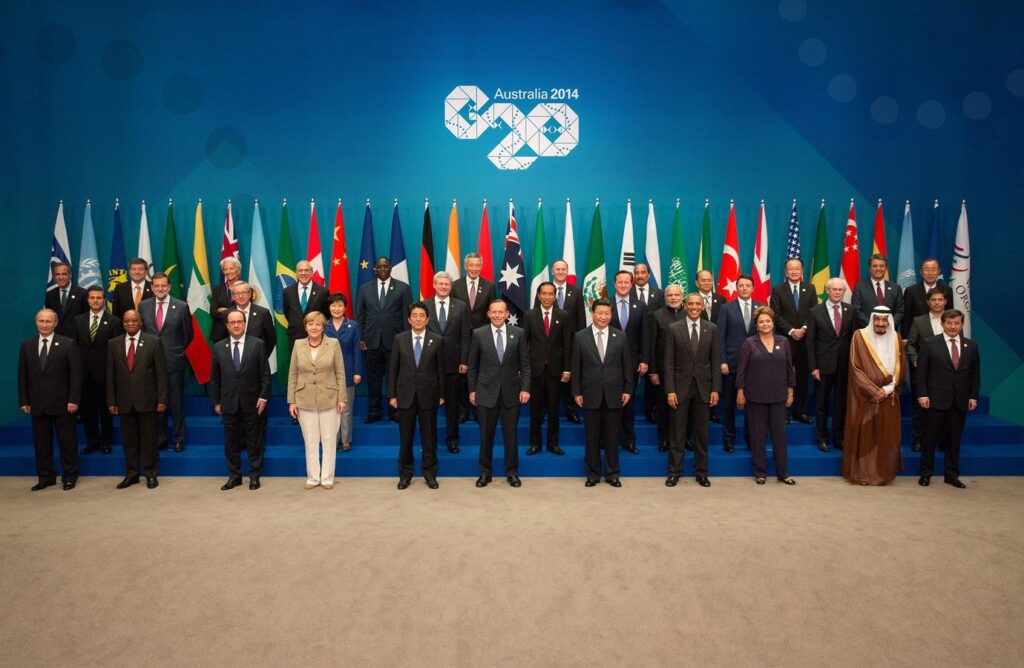The global digital economy is entering a critical period—as the incoming Trump administration signals a likely resurgence of US protectionism, countries face mounting pressure to rethink their digital service taxes (DSTs). These taxes, designed to ensure tech giants pay their fair share in the regions where they generate their revenue, are a source of international contention—particularly with the United States.
The stakes are about to become higher than ever. The US has historically framed DSTs as discriminatory measures targeting American technology firms and responded in kind with threats of trade retaliation against individual countries. The question is no longer whether countries will implement these taxes, they have; the question is whether they can weather the political and economic fallout when doing so unilaterally.
The path forward lies not in isolation and scattershot DST policies, but regional solidarity and aligning with the efforts of developing nations to tax the digital economy fairly—or force the US to the negotiating table for Pillar One.
Regional Alliances Against Protectionism Challenges
Under past administrations, US opposition to DSTs has translated into threats of trade sanctions and retaliation—with the US leveraging its economic might to deter smaller nations from adopting or maintaining DSTs.
The resurgence of an “America First” economic perspective presents a stark dilemma for countries considering DSTs: implement these taxes and risk economic backlash, capitulate and allow US tech giants to continue reaping disproportionate profits from your markets. Unilateral action is both perilous and economically unsustainable.
What’s at stake isn’t just tax policy, but the broader question of whether countries can work collectively to ensure that the digital economy benefits all markets. Regional cooperation offers a vital path forward. The alternative, fragmented and scattered, becomes an easy target for retaliation.
A unified European Union policy, for example, would shield member states from targeted backlash by spreading the risk and demonstrating collective resolve. A coordinated approach would also strengthen the EU’s credibility on the global stage—signaling to the US and other major players that the region is serious about addressing tax inequities in the digital economy.
Ultimately, either a multilateral framework like the OECD’s Pillar One will need to be implemented, or regional coalitions like the EU will need to push forward with policies that force larger players to reckon with a coordinated global push for fairness. The best route forward for the former may be to use the latter as a negotiating piece—individual DSTs can be squashed through tariffs, but a broad regional DST may require some capitulation.
Time is of the essence—delays will further cement the current status quo of stalled negotiations, policy stagnation, and perpetuated inequities in the global economy.
Expanding the Coalition
To strengthen the case for fair taxation in the digital economy, regional coalitions like the EU must look beyond their borders and align with developing nations already advocating for DSTs. By framing DSTs as a global fairness issue, rather than a US-targeting measure, a broader coalition could shift the narrative and garner support for reform.
Developing nations have, in fact, long been at the forefront of efforts to tax the digital economy. Many developing states face significant revenue. Losses to tax avoidance by multinational tech companies operating within their borders. For these nations, DSTs aren’t policy preferences—they’re funding necessities.
Aligning with these states serves multiple strategic purposes. First, it reframes DSTs as a tool for global equity rather than a cash grab by affluent governments. This broader framing could diffuse many of the US arguments that DSTs are discriminatory and instead position them as a mechanism to correct imbalances in the global tax system.
Second, a coalition that includes both developed and developing states complicates retaliation—while individual countries or regions can be hit with trade sanctions, confronting a united front of the EU, the African Union, and other developing economies presents a challenge. Such a coalition would also send a powerful message that the push for digital tax fairness transcends regional interests and economic positioning.
Ultimately, collaboration between developing and developed states enhances the credibility of multilateral tax reform efforts. By united behind common principles for fair taxation, a broader coalition could strength the case for frameworks like Pillar One.
Inaction risks perpetuating a status quo where market states remain on the losing end of the global digital tax system.
Read the full article here

